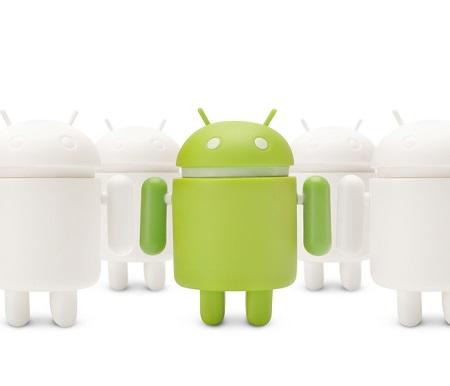Android Marketshare Hits Record 88%, Report FindsAndroid Marketshare Hits Record 88%, Report Finds
A recent report from Strategy Analytics finds that Android has reached a record 88% marketshare during the third quarter of 2016. At the same time, Apple's iOS lost some ground, and other mobile operating systems have all but disappeared.


Gartner's 10 Tech Predictions That Will Change IT
Gartner's 10 Tech Predictions That Will Change IT (Click image for larger view and slideshow.)
If you own a smartphone, it's likely running Google's Android.
A Nov. 2 report from Strategy Analytics finds that in the third quarter of 2016 Android held an 87.5% share within the global smartphone market -- a record number for the operating system. With the OS running on nearly nine out of ten smartphones, it's dominance is almost assured for a long time to come.
Android's advance comes at Apple's expense. Specifically, Apple's iOS marketshare dropped from 13.6% in 2015 to 12.1% in 2016. During the same time, Android's slice of the market increased from 84.1% to nearly 88%, according to the report.
Part of the reason for the decline of iOS is Apple's late-year launch of its iPhone and iPhone 7 Plus, combined with poor performance in emerging markets such as China and Africa.
"Android's domination of global smartphone shipments remained strong in Q3 2016, with a record 88 percent of all smartphones now running Google's OS," Neil Mawston, executive director at Strategy Analytics, wrote in a statement. "Android's gain came at the expense of every major rival platform. Apple iOS lost ground to Android and dipped to 12 percent share worldwide in Q3 2016, due to a lackluster performance in China and Africa."
At the same time, the Strategy Analytics report found that smartphone shipments increased during this time period -- good news for a mobile market that has watched its fortunes decline over the past year. The report finds that total shipments increased 6%, from 354.2 million units in the third quarter of 2015 to 375.4 million during the third quarter of 2016.
While mature markets are fairly saturated with smartphones, the report found that this modest uptick in shipments came from places in Asia, Africa, and the Middle East, including South Africa and India. (India is a market that Apple has started to target as an untapped resource.)
Within the overall market number, the number of smartphones running Android increased about 10%, from 298 million during the third quarter of 2015 to 328.6 million during this last quarter. iOS shipments dropped from 48 million to 45.5 million during the same time period.
[Read about Gartner's predictions for IT spending next year.]
The more shocking number is the 84% drop in smartphones running other types of operating systems, including BlackBerry and Microsoft's Windows Phone.
Overall, these smartphone shipments fell from 8.2 million to only 1.3 million during this time period. Microsoft has all but abandoned its phone efforts, while BlackBerry announced that it would no longer manufacture its own smartphones, but license its name to third-party partners.
While it's doubtful that Android's dominance will dissipate anytime soon, the operating system does face a number of challenges due to its dominance.
The report found that overcrowding in the market, the inability of some vendors to turn a profit with the OS, and Google's own foray into hardware with its Pixel phone -- which will challenge its own partners -- could eventually hurt its standing.
In addition, Apple's next iPhone model -- tentatively called the iPhone 8 -- is expected to be a major technological leap forward. It could further boost the popularity of iOS.
About the Author
You May Also Like






